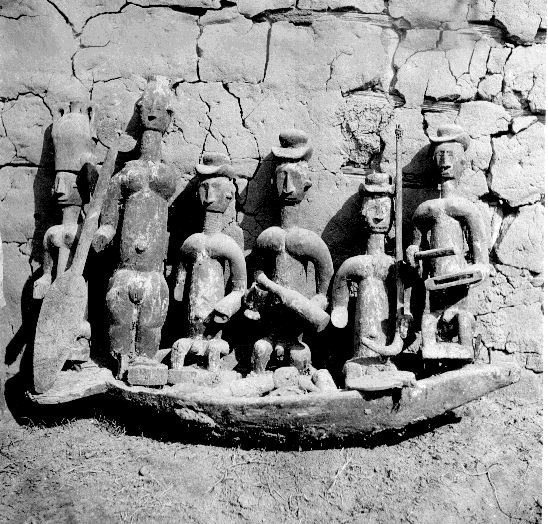 |
 |
TRANSLATOR'S PREFACE
| “Omenuko,”
by Pita Nwana, is described as the first novel to be written in the Igbo
language. It was published in 1933 after winning an all-Africa literary
contest. It is said to have been based on actual events in the life of
the hero, Omenuko, whose name might be translated as “the resourceful one,”
or “one who acts in the time of scarcity.” Prof. E. N. Emenyonu suggests
that Omenuko can be described more negatively as a person who takes action
only when he is forced to. The book is still a classic in Igbo literature,
and continues to be used in Nigerian schools.
In another publication on this site, “Omeokachie Omenuko,” I have seen the spelling of “Nwana” used interchangeably with “Nwanna.” For now, I will continue to use “Nwana” for the sake of consistency, despite the fact that it in Igbo it surely means “child of the father” and as such would require the double “n” [“nna” = father]. The novel is set at the end of the 19th century and the beginning of the 20th. There are 15 chapters, dealing with Omenuko’s life and deeds in the land of his refuge, his rise to and fall from power there, his efforts to locate and repatriate those whom he had wronged, and the maneuvers that permitted his eventual return to his native place without suffering the wrath of the villagers. Omenuko is shown to be adept at exploiting both the British colonial officials and the traditional practices of his home area. Perhaps this partially explains its popularity with modern-day Igbo people who, like Omenuko, are called on to reconcile two worlds. Nwana, following Igbo custom, has employed many proverbs throughout his text. I have set these apart by putting them in italics. Elsewhere, some words and phrases were inserted by the translator and are enclosed in square brackets. I hope that the universal elements in this tale will appeal to all readers. Some
of the facts in this preface came from “The Rise of the Igbo Novel,” by
Dr. Ernest N. Emenyonu (Ibadan: Oxford University Press, 1978), Chapter
3. I am also especially indebted to the late Joel Ikoku Nwamuo, an Ngwa
Igbo man, who patiently and meticulously guided my translation endeavors.
In addition, I salute my daughter and namesake, Professor Frances Pritchett,
who never ceases to encourage me in my translation work.
Frances W. Pritchett
|